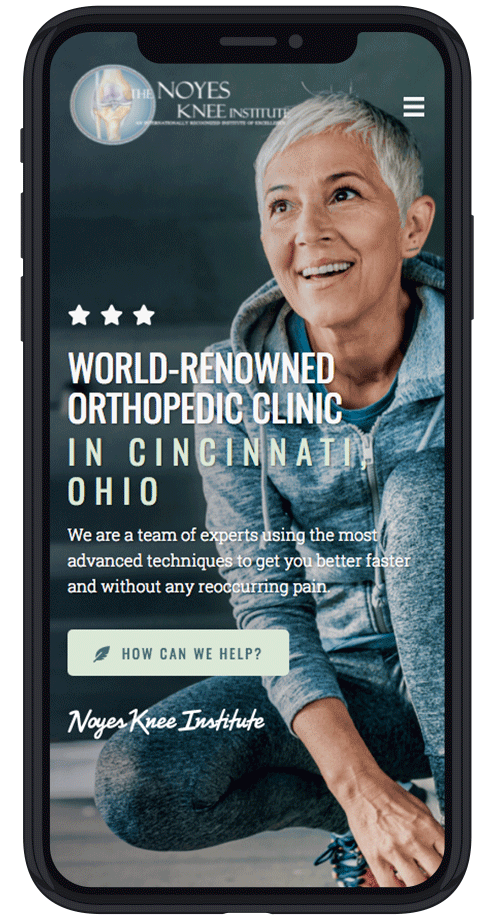Published On
Category
Your cartilage plays a key role in your ability to move comfortably. The rubbery connective tissue sits between your joints, acting as a cushion and absorbing friction whenever you flex and extend.
But despite being a tough material, cartilage wears away easily, and in some cases, cartilage can break away from the joint entirely. When you experience damage or loss to your cartilage, you may suffer stiffness, inflammation, and limited range of motion.
The following factors can influence whether you suffer from cartilage loss and damage. With a few small changes and professional help, you can avoid many of them.
1. Obesity
Every time you move, your joints (and subsequently your cartilage) have to withstand some degree of pressure and stress. When you walk, your hips, knees, and ankles have to support the weight of the rest of your body. Additionally, your joints have to absorb the force of impact that travels up your leg with each step.
While your cartilage can usually withstand your day-to-day activities, the more weight you have, the more weight you put on your joints. Experts estimate that 1 pound of weight adds 4 pounds of pressure on your knees. If you are overweight by 15 pounds, your knees have to take an additional 60 pounds of pressure. If you are 50 pounds overweight, your knees uphold an additional 200 pounds of pressure.
To avoid premature cartilage loss and excess wear and tear, try to stay within a healthy body mass index.
2. Joint Instability
Your joints need some flexibility to effectively absorb impact and accommodate movement. However, if your joints move too much, they become unstable and can no longer hold the bones in place. The excessive movement allows the cartilage to slide over the bone, further wearing away the connective tissue.
Joint instability occurs for a variety of reasons, but a large majority of cases result from overuse and repetitive movements. Excessive swimming may cause shoulder joint instability. Similarly, typing with poor posture may contribute to wrist joint instability. Running in ill-fitting footwear can lead to knee and ankle instability.
To protect your joints and cartilage, give your body plenty of time to rest and recover in between training sessions and intense physical activities. Always wear appropriate clothing and gear, and seek guidance from a professional to ensure proper alignment and form.
3. Malnutrition
With proper care and management, your cartilage can repair itself after suffering from damage or loss. The right diet gives your body the components it needs to rebuild your connective tissue. In contrast, a poor, nutrient-deficient diet slows your recovery and weakens your joints and tissues.
If you want to maintain healthy cartilage, your diet should focus on foods that fight inflammation, such as tomatoes, green leafy vegetables, fatty fish, and olive oil. Additionally, you’ll want to include foods rich in vitamin C, which supports collagen production, a protein that strengthens cartilage. Foods high in vitamin C include oranges, strawberries, papayas, and grapefruits.
4. Hormonal Changes
Leptin is a hormone that maintains body weight homeostasis, signaling to the brain when you’ve eaten enough. It also regulates your immune system and inflammatory responses.
When leptin levels rise, it triggers the production matrix metalloproteinases, a group of enzymes responsible for breaking down proteins. Researchers have found that individuals with high leptin levels also have a greater risk for osteoarthritis, suggesting that leptin may play a role in cartilage thickness and degeneration.
As leptin depends on fat cells for production, obese individuals may experience a significant increase in leptin production. The pressure and weight combined with leptin production further increase the likelihood of osteoarthritis and other degenerative joint diseases.
Additionally, hormones such as serotonin and insulin may also alter leptin production. If all of these hormones are out of sync, cartilage loss won’t be far behind.
Hormone regulation requires professional help. If you are overweight or you worry that your hormones might be out of balance, schedule an appointment with your doctor.
Talk to a Medical Professional About Cartilage Repair
While the above factors and conditions can damage your cartilage, you don’t have to live with joint pain and stiffness forever. A professional orthopedic surgeon can advise you on the best methods for restoring your damaged cartilage. Depending on the severity of the damage, you may need a combination of surgical and non-surgical treatments to recover from cartilage loss.

